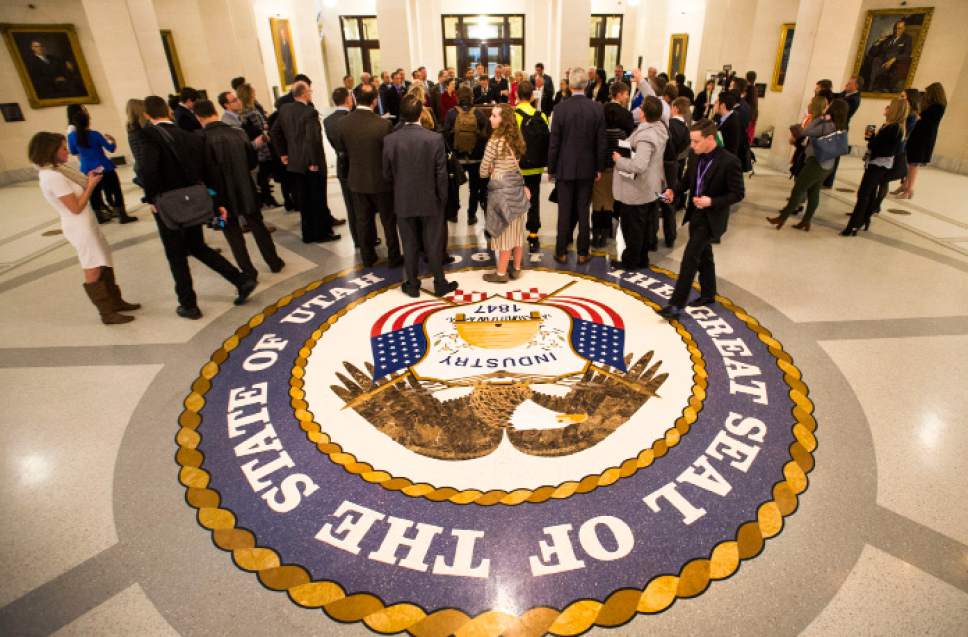This is an archived article that was published on sltrib.com in 2017, and information in the article may be outdated. It is provided only for personal research purposes and may not be reprinted.
Believe it or not, the air is getting cleaner in Utah.
Is that going to continue? For the next few years, it largely depends on the Donald Trump administration.
In a state that prides itself on thin regulation, Utahns never have received much help from state law when it comes to air pollution. Utah legislators, particularly in recent years, have been willing to chip in, like requiring more efficient water heaters or tax incentives for electric cars.
But the real hammer has been the federal Clean Air Act and the Environmental Protection Agency that enforces it. That nearly half-century-old commitment to reducing pollution required dramatic cuts in industrial air pollution and a steady tightening of emissions standards for automobiles.
Those two requirements have driven the vast majority of progress made to reduce the harmful chemicals that get trapped by the Wasatch Front's geography. And as the Front once again topped the nation for the worst air this week, we're also faced with the prospect of losing that hammer.
Scott Pruitt, Trump's pick to run EPA, told senators at his confirmation hearing last month that EPA may not continue to give California a federal waiver to set its own pollution standards. Pruitt is an Oklahoman with ties to the oil industry.
If that waiver goes away, the effect will reach far beyond California. For automakers, the massive California auto market is unavoidable. They have been striving to meet stiffer California emission standards, and those cleaner cars get sold in Utah and elsewhere.
Cleaner vehicles have been the single biggest factor in improving air quality in Utah over the past 20 years or more. Nothing else even comes close. If that progress slows and less-polluting cars become a smaller part of our fleet, the consequences will be long lasting. Even if the feds were to return to tighter standards later, it will take years to get the dirtier cars off the road.
Meanwhile, Rep. Rob Bishop sees deregulatory opportunity in the U.S. Bureau of Land Management's rule on methane escaping from oil and gas operations. The Obama BLM recently put out rules to require operators to trap more methane, a change that not only cleans up the air but also gives operators more natural gas to sell. But Bishop wants Congress to rescind the methane rule, something he's betting a Trump BLM won't challenge.
Here's where we sit. Will we get more days when our business recruiters lose prospects as soon as they land at the airport? More days when our children can't exercise outside without risking their health? More days when our lung-challenged residents literally die?
The changes in Washington are indeed dramatic. Here's hoping they don't take our breath away.



